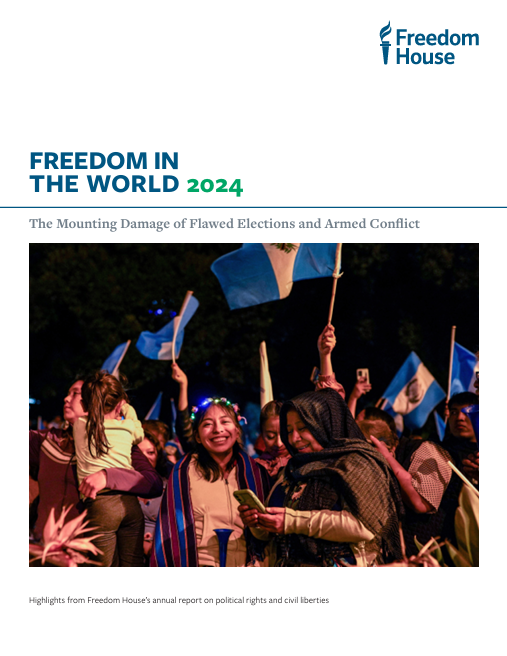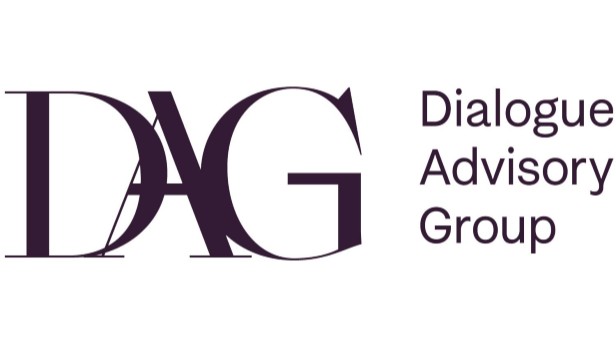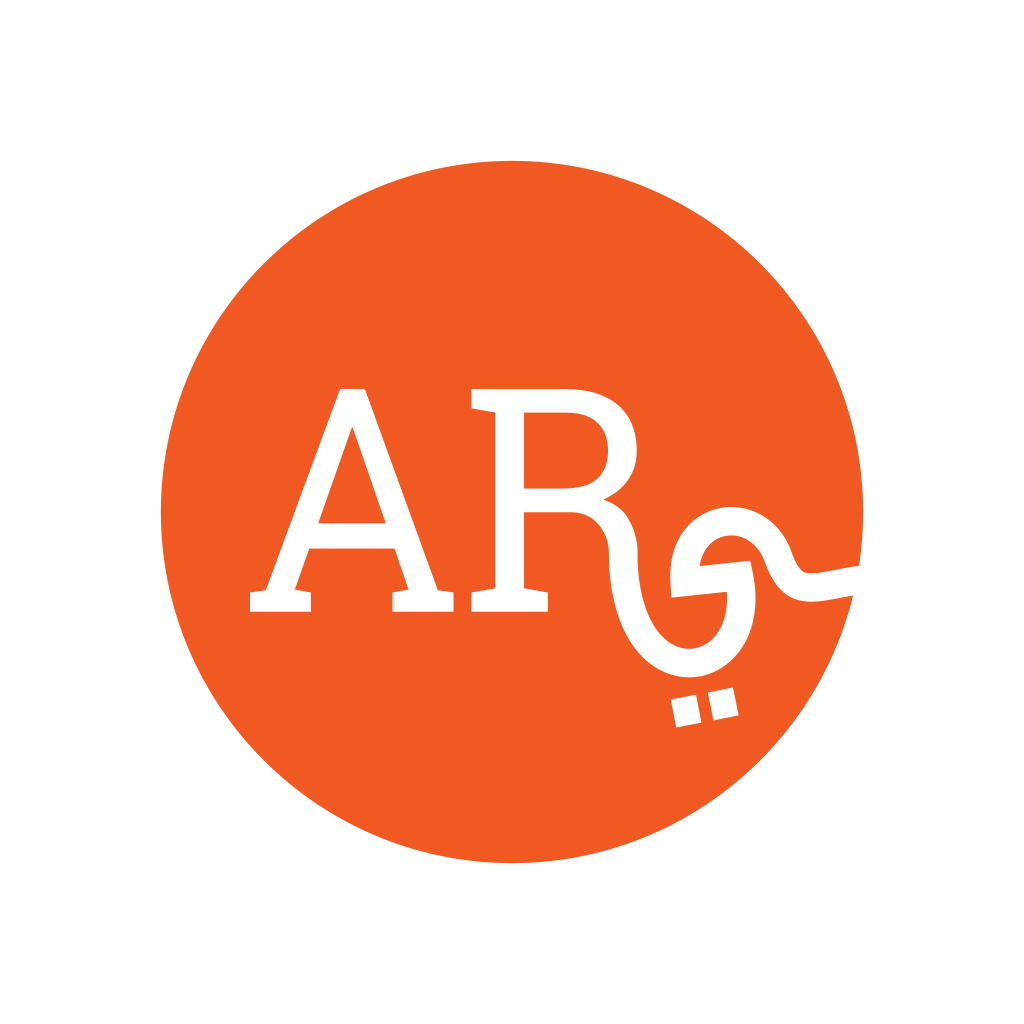According to the Freedom in the World 2024 report, global freedom has declined for the 18th consecutive year in 2023. This report identifies the main causes of this decline: election manipulation and armed conflict. Interestingly, out of all the countries, only 21 showed improvements, while 52 experienced declines. This situation impacted approximately 22% of the global population. Importantly, the report suggests that democratic forces can reverse this prolonged decline in global freedom by embracing diversity, safeguarding dissent, and forming international coalitions to uphold their norms and values.
Overview
Key Findings
Provides a summary of the global condition of freedom and democracy, effectively highlighting the challenges and opportunities in the global landscape of these concepts.
- Global Decline in Political Rights and Civil Liberties: Highlights a concerning trend of attacks by authoritarian forces leading to a decline in political rights and civil liberties worldwide over the past 18 years. It underscores the challenges faced by democracies in upholding fundamental freedoms.
- Resilience of Front-Line Defenders: Despite the global decline in freedom, it acknowledges the resilience of human rights defenders, democracy activists, journalists, and ordinary citizens who continue to fight for freedom and democracy in their respective countries. Their efforts are crucial in sustaining the larger democratic struggle against authoritarian rule.
- Importance of Solidarity and Accountability: Emphasizes the need for democratic governments, donors, and the private sector to deepen solidarity with front-line allies and hold dictators accountable for rights abuses and corruption. This solidarity is essential for advancing the cause of freedom globally.
- Investment in Democratic Institutions: Underscores the importance of investing in democratic institutions domestically and internationally. Strengthening democratic institutions is crucial for upholding democratic norms, promoting transparency, and safeguarding human rights.
- Upholding Core Principles: Warns against compromising core democratic principles for short-term interests. It stresses the importance of maintaining unwavering political will to uphold democratic norms and values, despite challenges and external pressures.
- Global Order Based on Democratic Norms: Advocates for a global order where democratic norms prevail, emphasizing that only such an order can deliver liberty, prosperity, and security for current and future generations.
- Support for Front-Line Allies: Calls for steady support and flexible funding for individuals and organizations on the front lines of the struggle against tyranny. Failure to support these front-line defenders can embolden autocrats and lead to setbacks in the fight for freedom and democracy.
The Mounting Damage of Flawed Elections and Armed Conflict
Analyzes trends observed in 2023 related to global freedom. This section highlights the significant challenges, flawed elections, and armed conflict in global freedom, stressing the need for a collective response.
- Global Decline in Freedom: Notes that global freedom declined for the 18th consecutive year in 2023, significantly impacting various countries’ political rights and civil liberties.
- Impact of Flawed Elections: The deterioration in rights and freedoms in 52 countries was attributed to problems with elections, including violence and manipulation. Examples include Ecuador’s downgrade due to disruptions by criminal organizations and attempts by incumbents in countries like Cambodia, Guatemala, Poland, Turkey, and Zimbabwe to control electoral competition.
- Armed Conflict and Authoritarian Aggression: The world became less safe and democratic due to armed conflicts often driven by authoritarian aggression. The report highlights the case of Nagorno-Karabakh, which experienced a decline in freedom following a military offensive by the Azerbaijani regime.
- Regional Impact: Mentions specific cases like the military coup in Niger and the wave of coups in the Sahel region of Africa, indicating a broader trend of political instability and threats to democracy.
- Urgent Need for Support: The assaults on pluralism and democracy underscore the importance of supporting individuals and groups, including human rights defenders and journalists, who defend freedom worldwide.
Freedom in the World Methodology
Outlines the strategy used to assess the condition of freedom in 195 countries and 15 territories during 2023. This section provides a comprehensive framework for global freedom assessment, stressing the significance of examining various indicators to evaluate the status of political rights and civil liberties across different regions.
- Evaluation Criteria: Each country and territory is assessed based on 25 indicators, with scores ranging from 0 to 4 for a total aggregate score of up to 100. These indicators are categorized into political rights (0-40) and civil liberties (0-60), with equal weighting to determine the overall status of Free, Partly Free, or Not Free.
- Universal Declaration of Human Rights: The methodology is derived from the Universal Declaration of Human Rights and is applied universally, irrespective of geographic location, ethnic or religious composition, or economic development level.
- Real-World Rights and Freedoms: Focuses on individuals’ rights and freedoms rather than government performance. Both state and non-state actors, including insurgents and armed groups, can impact political rights and civil liberties.
- Status Changes: Highlights status changes in specific countries and territories, such as Ecuador, Nagorno-Karabakh, and Thailand, based on developments in 2023.
- Methodology Transparency: It is transparent and accessible, with detailed information on the Freedom House website for those interested in understanding the evaluation process.
Freedom in the World 2024 Map
The status of freedom in 210 countries and territories globally is visually represented. Importantly, this section serves as a helpful visual summary, thereby assisting in distributing key findings and trends worldwide.
- Geographic Representation: Categorizes countries and territories into three main groups based on their level of freedom: Free, Partly Free, and Not Free. This visual representation allows for a quick and comprehensive understanding of the global distribution of freedom.
- Status Breakdown: The map shows the number of countries and territories classified under each category (Free, Partly Free, Not Free), providing an overview of the overall distribution of freedom worldwide.
- Comprehensive Assessment: Covers many regions and territories, highlighting the diversity of political rights and civil liberties worldwide.
- Accessibility: A user-friendly tool for policymakers, researchers, and the general public to grasp the state of freedom globally at a glance.
- Data Visualization: By presenting the information in a visual format, the map enhances the understanding of complex data related to freedom and democracy
Regional Trends
Analyzes the state of freedom in various regions worldwide. This section provides a comprehensive overview, highlighting regional variations and challenges affecting democracy and human rights.
- Regional Overview: Examines the trends and developments in various regions, highlighting each area’s political rights and civil liberties.
- Regional Variances: Discusses the differences in freedom levels across regions, noting areas where freedom has improved, deteriorated, or remained stable.
- Regional Challenges: Identifies specific challenges each region faces, such as political instability, human rights violations, armed conflicts, and authoritarian tendencies.
- Comparative Analysis: By comparing the status of freedom in different regions, the report offers insights into the global landscape of democracy and human rights.
- Implications for Global Freedom: The regional trends have implications for the overall state of global freedom, reflecting the interconnected nature of political developments worldwide.
- Policy Recommendations: This may also include policy recommendations tailored to address the specific challenges faced by each region and promote democratic values and human rights.
Notable Threats to Freedom in 2023
Spotlights key threats and challenges impacting freedoms, focusing on human rights violations, discrimination, and threats experienced by migrants, refugees, religious minorities, and other vulnerable groups.
- Arbitrary Deportation and Violence Against Migrants and Refugees: Emphasizes arbitrary deportations and physical violence against migrants and refugees, such as the Lebanese military deporting thousands of Syrians and Pakistan’s displacement due to the expulsion of unregistered migrants.
- Suppression of Freedom of Religion: Stresses cases where the freedom to practice a chosen religion was suppressed. Instances include the Taliban regime in Afghanistan enforcing religious conformity and incidents of violence targeting mosques, Muslim-owned businesses, and Christian churches in countries like India and the United States.
- Rise in Anti-Immigrant Sentiments: Notes incidents of violence and discrimination against migrants and refugees, including anti-immigrant demonstrations and vandalism targeting migrant-owned businesses in Cyprus and Germany.
- Increase in Anti-Semitic and Anti-Muslim Threats: Mentions a rise in anti-Semitic and anti-Muslim threats and violence in several countries, including the United States, following heightened tensions related to conflicts in the Middle East.
- Hate Crimes and Discrimination: Specific incidents of hate crimes, discrimination, and violence against individuals based on their religion or ethnicity are highlighted, underscoring the challenges faced by vulnerable groups in various parts of the world.
Policy Recommendations
Offers practical suggestions to tackle challenges to freedom and democracy highlighted in the report. Hence, this section guides policymakers, civil society actors, and international organizations, assisting them in addressing these challenges and fostering a more inclusive, democratic, and respectful society.
- Strengthening Electoral Integrity: Recommends measures to enhance the integrity of electoral processes, including ensuring free and fair elections, preventing electoral manipulation, and holding accountable those who undermine democratic norms.
- Protecting Human Rights Defenders and Journalists: Policy recommendations focus on safeguarding the rights and safety of human rights defenders and journalists who promote freedom and democracy. This includes preventing attacks, harassment, and censorship against these individuals.
- Combating Authoritarian Aggression: Suggests strategies to counter authoritarian aggression and protect democratic institutions from external threats. This may involve diplomatic efforts, sanctions, and international cooperation to uphold democratic values.
- Promoting Pluralism and Inclusivity: Recommendations emphasize the importance of fostering pluralism and inclusivity in societies, ensuring the peaceful coexistence of individuals with diverse political ideas, religions, and ethnic identities. This includes supporting marginalized groups and promoting tolerance and diversity.
- Upholding International Human Rights Standards: Calls for adherence to international human rights standards and conventions to protect the rights and freedoms of all individuals, regardless of their background or beliefs. This includes holding governments accountable for human rights violations.
- Supporting Civil Society and Democratic Institutions: Policy recommendations highlight the need to strengthen civil society organizations, independent media, and democratic institutions that play a crucial role in upholding freedom and democracy. This may involve providing these entities with resources, training, and legal protections.
Furthermore. Moreover. Nonetheless. Nevertheless. Furthermore. Moreover. Nonetheless. Nevertheless.




